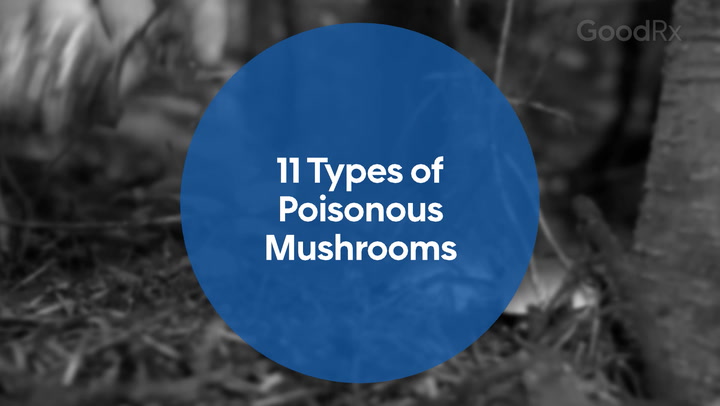
14 Medications That May Elevate Liver Enzymes and Raise Your Risk of Liver Damage
Key takeaways:
There are many medications that can increase the risk of liver damage. Certain antibiotics, anti-seizure medications, and cancer treatments are a few examples.
Some over-the-counter (OTC) medications and supplements can cause liver problems, too. Tylenol, weight-loss supplements, and green tea extract have all been linked to these types of issues.
Signs of drug-induced liver injury (DILI) include abdominal pain and swelling, dark urine, yellowing of the skin and eyes, and changes in personality or behavior. Often blood work can detect abnormal liver function.
Table of contents

Did you know that your liver is the largest solid organ inside your body? This football-sized powerhouse helps keep you alive and healthy. As you move throughout your day, it works hard to detoxify your blood, help with digestion, and restore your energy levels. You can’t live without it.
Your liver also plays an important role in metabolizing medications. But some medications can directly damage this vital organ, in what’s known as drug-induced liver injury (DILI).
Here, we’ll discuss 10 medications that could potentially harm your liver or lead to elevated liver enzymes. We’ll also cover what symptoms to look out for and what you can do to prevent liver toxicity (hepatotoxicity).
Save up to 60% on Farxiga
Healthy heart for less. Pay as little as $288 for 30 tablets of Farxiga with GoodRx - no insurance needed.

1. Tylenol
Tylenol (acetaminophen) is a common over-the-counter (OTC) pain reliever and fever reducer. It’s not toxic to the liver when you take it now and then, and stay within recommended dosages. But large doses and long-term use can cause liver damage.
In fact, just one large dose of Tylenol can cause liver damage. This is called Tylenol overdose, and it’s a medical emergency. You should call Poison Control at 1-800-222-1222 or go to the nearest emergency room if you think you have taken too much Tylenol.
Tylenol can also cause liver damage if you take it too often — especially over time. This concern is more relevant among people who have a serious illness, alcohol use disorder, or pre-existing liver issues.
Here’s how you can lower the risk of liver problems related to Tylenol:
Don’t take more than the maximum recommended amount (4,000 mg per day).
Don’t drink alcohol while taking Tylenol.
Check to see if any of your OTC or prescription pain medications contain acetaminophen, so you can avoid accidentally taking it from multiple sources. Keep in mind that many OTC cold and flu products also contain Tylenol.
2. Antibiotics, like Augmentin
Augmentin (amoxicillin/clavulanate) is a common antibiotic for respiratory, ear, and skin infections. It’s the antibiotic that’s most likely to cause liver injury — though, it’s not a very common side effect.
Do you have elevated liver enzymes? Learn what this means and what can affect blood tests for your liver.
Liver damage from alcohol: If you’re worried about your liver health, here are some of the earliest symptoms that could indicate a problem.
Foods and your liver health: Foods that are high in fat, sugar, and salt put extra stress on the liver. Learn more about how diet affects your liver.
Liver injury typically occurs within a few days to 8 weeks after starting treatment with Augmentin. This is more likely to affect men, older adults, and people who have taken Augmentin multiple times in a row. Thankfully, the damage is usually reversible and doesn’t cause lasting effects.
3. NSAIDs, like diclofenac
Many people take nonsteroidal anti-inflammatory drugs (NSAIDs) to help relieve pain, inflammation, and fever. Some are available OTC, but others — like oral diclofenac (Cataflam) — are available by prescription only.
Diclofenac is one of the most likely NSAIDs to cause liver injury. In many cases, the damage is significant enough to cause elevated liver function tests (LFTs) but not enough to cause symptoms.
Read more like this
Explore these related articles, suggested for readers like you.
LFTs measure liver enzymes (proteins), and increased numbers point to possible liver injury. These numbers are collected by your healthcare team through blood tests.
Serious liver damage is rare. But the risk is higher for women and with larger doses and/or long-term use (more than 4 weeks).
Keep in mind: Diclofenac also comes in topical forms, such as gels, creams, and patches. The risk of liver injury is lower with topical versions since a much smaller amount is absorbed into your body.
4. Amiodarone
Amiodarone (Pacerone) is a medication that’s used to treat abnormal heart rhythms. Increases in LFTs happen in up to half of people taking amiodarone on a long-term basis. But this usually doesn’t cause serious health problems.
In some cases, though, amiodarone can cause more substantial liver injury. This is estimated to affect up to 1% of people taking the medication. The FDA issued a boxed warning, its most serious medication warning, about this risk.
Liver injury related to amiodarone is more common in people who take the medication at higher doses and for long periods of time. Thankfully, this risk can be monitored. You’ll likely have regular LFTs while taking amiodarone to make sure your treatment doesn’t need to be adjusted.
5. Allopurinol
Allopurinol (Zyloprim) is a medication that’s used to prevent gout flares. Some people also take it to prevent certain kinds of kidney stones. And, more rarely, people with cancer take it to prevent a complication called tumor lysis syndrome.
Allopurinol can cause minor, reversible increases in LFTs in up to 6% of people who take it. This usually doesn’t lead to any long-term problems.
Less often, allopurinol can cause liver problems as part of a broader condition called drug reaction with eosinophilia and systemic symptoms (DRESS) syndrome. DRESS syndrome is a reaction to medication that also causes fever, rash, and abnormal blood tests, among other symptoms.
Allopurinol is also associated with severe skin reactions, such as Stevens-Johnson syndrome (SJS) and toxic epidermal necrolysis (TEN). And these conditions can also harm your liver.
6. Anti-seizure medications, like phenytoin
Anti-seizure medications top many lists as potential causes of liver injury. Phenytoin (Dilantin) is one of the most common causes of DILI and liver failure. But liver damage related to the medication is still pretty rare — it happens in less than 1 in 1,000 people taking phenytoin.
Liver injury typically occurs 2 to 8 weeks after starting treatment with phenytoin. Almost all phenytoin hepatotoxicity cases happen as part of broader medication reactions that affect the whole body, such as anticonvulsant hypersensitivity syndrome (AHS), DRESS, SJS, and TEN. However, most cases of this type of liver injury resolve within 1 to 2 months of stopping treatment with phenytoin.
Other anti-seizure medications that have been connected to liver problems are valproic acid (Depakene), carbamazepine (Tegretol), and lamotrigine (Lamictal).
7. Isoniazid
Isoniazid is an antibiotic that’s effective at preventing and treating tuberculosis. But it’s one of the top 10 most likely medications to cause DILI in several countries. Increased LFTs can affect up to 2 in 10 people taking isoniazid. But only about 1% of people taking the medication experience actual liver injury.
Most cases of isoniazid-related liver problems are mild and/or resolve within 1 week of stopping treatment with the medication. But isoniazid also has a boxed warning about the risk of severe liver inflammation.
The risk of liver failure related to isoniazid is higher for women, Black people, and people with existing liver problems. It’s also higher for older adults and people who drink alcohol daily.
8. Azathioprine
Azathioprine (Imuran) is a medication that intentionally suppresses the immune system. It’s commonly taken after an organ transplant and for the treatment of an autoimmune condition.
Azathioprine can cause a few types of liver injury. These range from mild, reversible increases in LFTs to long-term injuries that can develop 1 to 5 years after starting treatment with azathioprine. Liver toxicity related to azathioprine is most common in people who have received a transplant.
Stopping treatment with azathioprine will usually resolve these issues. But your healthcare team will likely routinely monitor your liver health while you’re taking the medication.
9. Methotrexate
Methotrexate is most often used to treat cancer and autoimmune conditions. But it does have a boxed warning regarding the risk of liver toxicity. The degree of injury varies depending on the dose and length of treatment.
High doses of methotrexate given through an IV can cause large increases in LFTs. But since high doses aren’t given routinely, liver enzymes tend to normalize quickly without symptoms. These doses are also usually administered in a controlled medical setting.
Lower, daily doses of oral methotrexate aren’t as likely to cause large LFT changes. Though, they may put people at risk for developing fatty liver disease or liver scarring. This is more common in people who already have risk factors for these conditions, such as excessive alcohol use or obesity.
10. Other cancer medications
Many cancer medications — including chemotherapy, targeted therapies, and hormonal agents — can cause liver issues.
Pembrolizumab (Keytruda) and nivolumab (Opdivo) are two examples. These medications, called immune checkpoint inhibitors (ICIs), allow the immune system to better identify cancer cells. But sometimes they prompt the immune system to create an exaggerated response and attack healthy cells. This causes liver inflammation in up to 6% of people receiving treatment with ICIs.
11. Risperidone
Risperidone is a medication used to improve mood, thoughts, and behavior for people with schizophrenia and bipolar disorder. Up to 30% of people develop abnormal liver tests while taking long-term risperidone therapy. These issues often develop within the first 8 weeks after starting treatment. Most often, liver elevations are mild, but some cases of acute liver injury have been reported.
12. Antifungal medications, like fluconazole
One review of the medical literature found that almost all antifungal medications have some potential to cause liver injury. Fluconazole (Diflucan) is the most common antifungal medication found to cause liver damage.
Fluconazole belongs to a class of antifungal medications called azoles. This same review found that azole medicines account for about 3% of all cases of drug-induced liver injury.
Most cases happen in the first month after starting treatment and fortunately resolve once the medication is stopped.
13. Statins
Statins were first introduced in 1987 to treat people with high cholesterol. But statin use has been associated with liver enzyme elevations. Most people who develop them will do so in the first 3 months of starting therapy. Most of these elevations are mild and often reverse on their own or after stopping therapy.
More recent research examining liver cells has shown that these liver enzyme elevations are due to cell leakage rather than injury. Experts have termed these liver “adaptations.” They estimate liver injury from statins is closer to 1%.
14. Antiretroviral therapy for HIV
Antiretroviral therapy, or ART, for the treatment of people with HIV has evolved since the HIV epidemic began. Many antiretroviral medications have the potential for liver toxicity. But the incidence is much lower with contemporary treatment regimens.
The risk of liver damage is higher for people with other liver infections, like hepatitis B, who have alcohol use disorder or who take other medicines that can damage the liver. But one study found that long-term ART doesn’t increase the risk of liver damage.
Can supplements cause liver damage?
Yes, there are a few potential supplements that cause liver damage. In fact, studies show that supplements account for up to 20% of liver injury cases in the U.S.
Dietary supplements linked to liver injury include:
Bodybuilding supplements containing anabolic steroids
Weight-loss supplements containing green tea extract
Certain vitamins when taken long term and at high doses, such as niacin (up to 3,000 mg per day taken for several months)
Herbal products like black cohosh and kratom
Keep in mind: Not all supplements are linked to liver injury. Check with your healthcare team or pharmacist prior to taking a supplement. This will help to make sure it’s appropriate for your situation and doesn’t interact with any medications that you’re already taking. Ginseng, for example, doesn’t cause direct liver damage but can lead to hepatotoxicity if taken with certain medications.
What are some symptoms of liver damage?
Liver damage doesn’t always come with symptoms. You may not know your medication is affecting your liver until blood work reveals abnormal LFTs. But, if you do develop liver symptoms, they can include:
Abdominal pain or tenderness
Abdominal swelling or distention
Dark urine
Nausea or vomiting
Unexplained weight loss
Yellowing of the skin and eyes (jaundice)
Change in personality or behavior
Confusion
Sleepiness
If you’re taking a medication that carries a risk of liver-related side effects and you develop symptoms of liver inflammation that last more than a day, you should let your healthcare team know immediately. They’ll likely assess your LFTs and decide if you need to stop taking the medication. If you aren’t sure if a medication carries these risks, feel free to check in with your pharmacist.
Frequently asked questions
Besides medication overdose or reactions, there are many reasons that you might have elevated liver enzymes.
Some of these elevations are temporary from viral infections like mononucleosis. Other more long-term issues can result from liver failure, scarring or cirrhosis, and liver cancer. Sometimes, even other conditions outside the liver itself like heart failure can lead to liver congestion and enzyme changes.
In rare cases, certain antihistamines have caused liver damage with long-term use. Cyproheptadine (Periactin) and cetirizine (Zyrtec) are the antihistamines most often linked to liver injury from chronic use. These cases have been mild and resolved when the medication was stopped. However, Benadryl (diphenhydramine) use has not been associated with elevated liver enzymes or apparent liver injury.
One study found that up to 9% of people without symptoms have elevated liver enzymes on a standard liver screening test.
Most often, you won’t have any signs of elevated liver enzymes unless these elevations become severe, and you develop liver damage. Symptoms can also vary depending what underlying liver disease is causing your particular liver enzyme abnormality.
Yes, stress can lead to high liver enzymes. Experts are still trying to figure out how that happens. They believe things like reduced blood flow to the liver, the effects of stress hormones, and the body’s immune system stress response may lead to liver damage.
The bottom line
There are several medications and supplements that can cause liver damage. Certain antibiotics, anti-seizure medications, and cancer treatments are prescription-only examples. But OTC products like Tylenol (acetaminophen), bodybuilding supplements, and green tea extracts can also cause liver injury.
Why trust our experts?



References
Allegis Pharmaceuticals. (2023). Augmentin- amoxicillin and clavulanate potassium for suspension [package insert]. DailyMed.
American Liver Foundation. (2022). What does your liver do?
A-S Medication Solutions. (2023). Isoniazid tablet [package insert]. DailyMed.
Averbukh, L. D., et al. (2022). Statin-induced liver injury patterns: A clinical review. Journal of Clinical and Translational Hepatology.
Björnsson, E. S., et al. (2016). Hepatotoxicity by drugs: The most common implicated agents. International Journal of Molecular Sciences.
Da Cunha, T., et al. (2022). Immunotherapy-induced hepatotoxicity: A review. Journal of Clinical and Translational Hepatology.
Francis, P., et al. (2022). Drug induced hepatotoxicity. StatPearls.
Ghannam, M., et al. (2017). Anticonvulsant hypersensitivity syndrome after phenytoin administration in an adolescent patient: A case report and review of the literature. Clinical and Molecular Allergy.
Grigorian, A., et al. (2014). Hepatotoxicity secondary to chemotherapy. Journal of Clinical and Translational Hepatology.
Joung, J., et al. (2019). A literature review for the mechanisms of stress‐induced liver injury. Brain and Behavior.
Malakouti, M., et al. (2017). Elevated liver enzymes in asymptomatic patients – what should I do? Journal of Clinical and Translational Hepatology.
National Institute of Diabetes and Digestive and Kidney Diseases. (2016). Acetaminophen. LiverTox.
National Institute of Diabetes and Digestive and Kidney Diseases. (2016). Amiodarone. LiverTox.
National Institute of Diabetes and Digestive and Kidney Diseases. (2017). Antihistamines. LiverTox.
National Institute of Diabetes and Digestive and Kidney Diseases. (2017). Azathioprine. LiverTox.
National Institute of Diabetes and Digestive and Kidney Diseases. (2017). Diclofenac. LiverTox.
National Institute of Diabetes and Digestive and Kidney Diseases. (2017). Diphenhydramine. LiverTox.
National Institute of Diabetes and Digestive and Kidney Diseases. (2018). Ginseng. LiverTox.
National Institute of Diabetes and Digestive and Kidney Diseases. (2018). Isoniazid. LiverTox.
National Institute of Diabetes and Digestive and Kidney Diseases. (2019). Acute liver failure. LiverTox.
National Institute of Diabetes and Digestive and Kidney Diseases. (2019). Anticonvulsants. LiverTox.
National Institute of Diabetes and Digestive and Kidney Diseases. (2020). Allopurinol. LiverTox.
National Institute of Diabetes and Digestive and Kidney Diseases. (2020). Amoxicillin-clavulanate. LiverTox.
National Institute of Diabetes and Digestive and Kidney Diseases. (2020). Black cohosh. LiverTox.
National Institute of Diabetes and Digestive and Kidney Diseases. (2020). Kratom. LiverTox.
National Institute of Diabetes and Digestive and Kidney Diseases. (2020). Methotrexate. LiverTox.
National Institute of Diabetes and Digestive and Kidney Diseases. (2020). Nonsteroidal antiinflammatory drugs (NSAIDs). LiverTox.
National Institute of Diabetes and Digestive and Kidney Diseases. (2020). Phenytoin. Livertox.
National Institute of Diabetes and Digestive and Kidney Diseases. (2023). Risperidone. LiverTox.
National Institutes of Health Office of Dietary Supplements. (2022). Niacin: Fact sheet for health professionals.
Navarro, V., et al. (2017). Liver injury from herbal and dietary supplements. Hepatology.
Otto, A. O., et al. (2021). Hepatotoxicity of contemporary antiretroviral drugs: A review and evaluation of published clinical data. Cells.
Qin, F. (2019). Liver damage in patients living with HIV on antiretroviral treatment with normal baseline liver function and without HBV/HCV infection: An 11-year retrospective cohort study in Guangxi, China. BMJ Open.
Rakhshan, S., et al. (2023). Hepatotoxicity induced by azole antifungal agents: A review study. Iranian Journal of Pharmaceutical Research.
RemedyRepack. (2024). Methotrexate tablet [package insert]. DailyMed.
Unifirst First Aid. (2024). Green guard maximum non-aspirin- acetaminophen tablet, film coated. DailyMed.
Zhang, L., et al. (2018). Infectious mononucleosis and hepatic function. Experimental and Therapeutic Medicine.
Zhou, Z., et al. (2022). Antifungal drugs and drug-induced liver injury: A real-world study leveraging the fda adverse event reporting system database. Frontiers in Pharmacology.




























